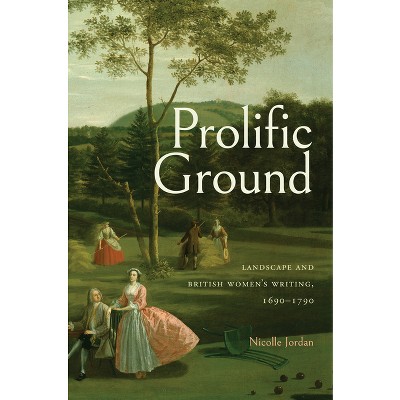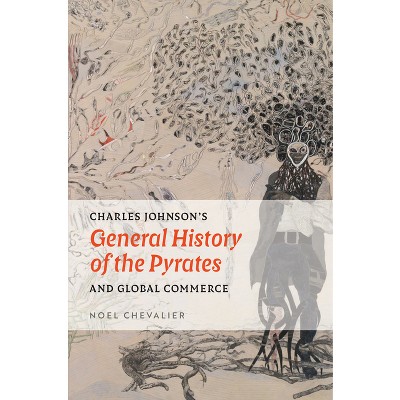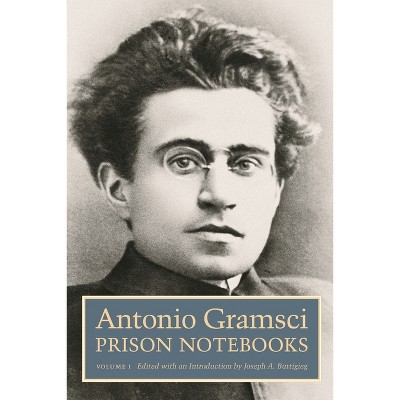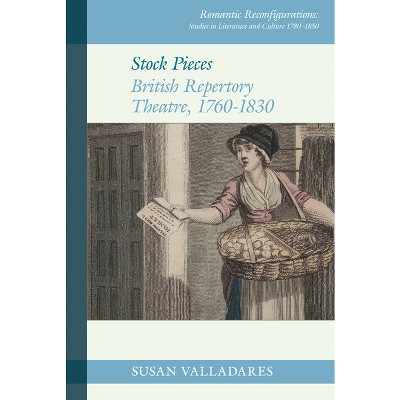British Romanticism and Prison Reform - (Transits: Literature, Thought & Culture, 1650-1850) by Jonas Cope (Paperback)

About this item
Highlights
- In eighteenth-century Britain, criminals were routinely whipped, branded, hanged, or transported to America.
- About the Author: JONAS COPE is an associate professor of English at California State University, Sacramento.
- 242 Pages
- Literary Criticism, Modern
- Series Name: Transits: Literature, Thought & Culture, 1650-1850
Description
About the Book
"In eighteenth-century Britain, criminals were routinely whipped, branded, hanged, or transported to America. Only in the last quarter of the century-with the War of American Independence and legal and sociopolitical challenges to capital punishment-did the criminal justice system change, resulting in the reformed prison, or penitentiary, meant to educate, rehabilitate, and spiritualize even hardened felons. This volume is the first to explore the relationship between historical penal reform and Romantic-era literary texts by luminaries such as Godwin, Keats, Byron, and Jane Austen. The works examined here treat incarceration as ambiguous: prison walls oppress and reinforce the arbitrary power of legal structures but can also heighten meditation, intensify the imagination, and awaken the conscience. Jonas Cope skillfully traces the important ideological work these texts attempt: to reconcile a culture devoted to freedom with the birth of the modern prison system that presents punishment as a form of rehabilitation. Published by Bucknell University Press. Distributed worldwide by Rutgers University Press"--Book Synopsis
In eighteenth-century Britain, criminals were routinely whipped, branded, hanged, or transported to America. Only in the last quarter of the century--with the War of American Independence and legal and sociopolitical challenges to capital punishment--did the criminal justice system change, resulting in the reformed prison, or penitentiary, meant to educate, rehabilitate, and spiritualize even hardened felons. This volume is the first to explore the relationship between historical penal reform and Romantic-era literary texts by luminaries such as Godwin, Keats, Byron, and Austen. The works examined here treat incarceration as ambiguous: prison walls oppress and reinforce the arbitrary power of legal structures but can also heighten meditation, intensify the imagination, and awaken the conscience. Jonas Cope skillfully traces the important ideological work these texts attempt: to reconcile a culture devoted to freedom with the birth of the modern prison system that presents punishment as a form of rehabilitation.
Published by Bucknell University Press. Distributed worldwide by Rutgers University Press.Review Quotes
"Consistently strong readings of seven major authors in the compelling and well-defined context of Romantic-era prison reform."--Noah Heringman "author of Deep Time: A Literary History"
"Jonas Cope's critically acute and splendidly revelatory study traces--through a wealth of interrelated philosophical, religious, legal, literary, visual, and theoretical sources--the complex course of Romantic-era British penal reform: its origins, evolution, and afterlives in post-Romantic public culture. A must-read."--Stephen Behrendt "author of British Women Poets and the Romantic Writing Community"
About the Author
JONAS COPE is an associate professor of English at California State University, Sacramento. He is the author of The Dissolution of Character in Late Romanticism, 1820-1839.










